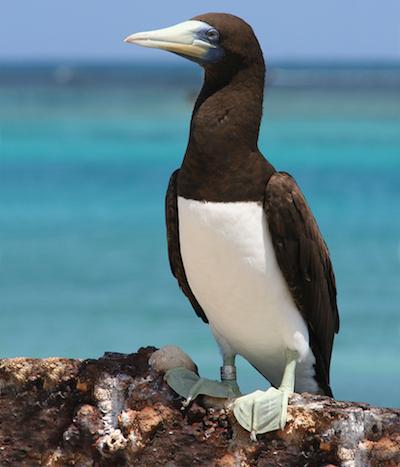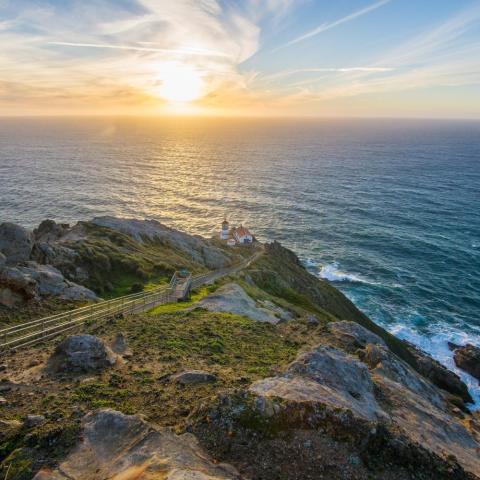
Brown boobies have been spotted nesting at Channel Islands National Park/Duncan Wright via NPS
Last week seabird biologists discovered brown boobies actively nesting on Santa Barbara Island, within Channel Islands National Park off the coast of California. This first record of brown boobies nesting in the park is a significant northward expansion of their breeding range, the National Park Service said.
During a survey on November 3, 2017, biologists observed four nests and 102 individual birds on Sutil Island off the southwest end of Santa Barbara Island, the smallest island in the park. The adult birds appeared to be incubating eggs or possibly tending to small young on the four nests.
The adult breeding pairs displayed characteristic mating behavior such as pair swapping, a practice of taking turns tending to the nest, and defending the nests from invading western gulls.
“This discovery, once again, demonstrates the importance of the Channel Islands as critical seabird habitat,” said Channel Islands Superintendent Russell Galipeau. “This makes for a total of 14 species of breeding seabirds, birds that rely upon the rich marine resources and the isolation of these offshore islands to provide food and undisturbed nesting grounds safe from predators.”
Brown boobies, generally considered a tropical or subtropical bird, appear to have been extending their range northward since the 1990s when they first migrated to the Coronado Islands of Baja California from the Gulf of California and Pacific coast of Mexico. This expansion of their range coincides with shifts in oceanic conditions with warmer waters and changes in prey availability associated with recent El Niño events.
An impressive seabird species, brown boobies are known for making spectacular plunge dives from heights of up to 50 feet to feed on surface fish. They nest on islands, laying their eggs on the bare ground, and making nests with sticks, rocks, bones, and vegetation to protect them. They winter far out to sea.
Worldwide, brown booby populations have declined due to habitat degradation on islands where introduced predators have reduced their nesting success.




 Support Essential Coverage of Essential Places
Support Essential Coverage of Essential Places






